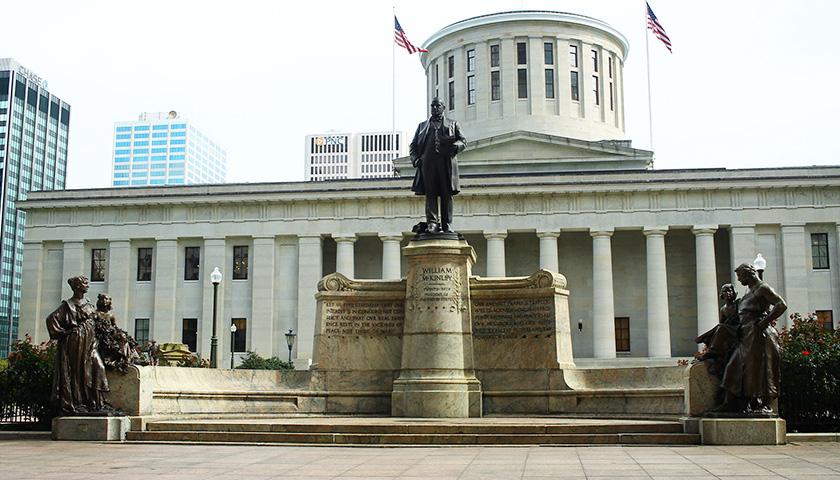The campaign behind the proposed constitutional amendment that would amend Ohio’s constitution by rewriting redistricting rules has raised more than $23 million this year, according to campaign finance reports.
The group Citizens Not Politicians’ campaign, called the Citizens Not Politicians Amendment, has raised a total of $23,033,931 this year.
Vote NO on Issue 1
NEWS: The campaign aiming enshrine gerrymandering into the Ohio constitution has raised more than $23 million, according to a newly released campaign finance disclosure form. That money mainly came from groups outside of Ohio.
— Jon Husted (@JonHusted) August 8, 2024
A majority of donations – approximately 85 percent – were found to have come from out of state entities, according to an analysis of the group’s finance reports by the Ohio Capital Journal.
“The largest contributors of money are progressive or nonpartisan groups in the Washington, D.C. area, funding about 60% of the campaign so far,” the outlet reported. “The Sixteen Thirty Fund has given the largest chunk of money — $6 million. Groups make up 98% of the funding, while 2% comes from individual donors. To be clear, individual donors donate to the larger groups.”
Every 10 years after the U.S. Census, the seven-member Ohio Redistricting Commission is tasked with redrawing Ohio’s 99 House districts and 33 Senate districts to reflect the most recent census results.
The commission was created by an amendment to the Ohio Constitution, which was approved by 71 percent of Ohio voters in November 2015.
Citizens Not Politicians’ proposed constitutional amendment, however, would replace the Ohio Redistricting Commission by creating the Ohio Citizens Redistricting Commission.
If voters were to pass the constitutional amendment, the new commission would comprise 15 members – five Democrats, five Republicans, and five independents – and would not allow current or former elected officials from serving on the commission.
The group says its proposal will ensure an “open and transparent process and fair outcomes that preserve the political power inherent in the people.”
However, Republican leaders in Ohio have resisted the proposal, arguing that such changes to the state’s redistricting rules would not end gerrymandered districts.
“If this ballot proposal were to be adopted, Ohio would actually end up with a system that mandates and compels map drawers to produce gerrymandered districts. In fact, Ohio would have gerrymandering in the extreme,” Ohio Governor Mike DeWine said last week in regards to the proposal.
The Ohio Republican Party has also opposed the proposed constitutional amendment. Chairman Alex Triantafilou called it a “shameful effort” that “misleads voters into thinking Issue 1 eliminates gerrymandering when in fact this amendment will guarantee that political and racial gerrymandering occurs.”
The proposal will be presented to Ohio voters on the November 5 general election ballot as Issue 1.
– – –
Kaitlin Housler is a reporter at The Ohio Star and The Star News Network. Follow Kaitlin on X / Twitter.





